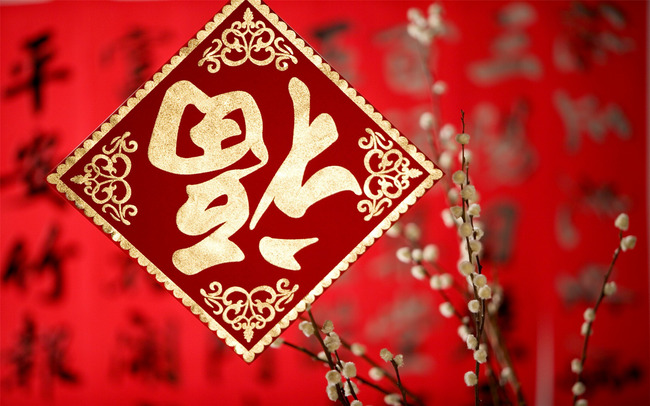Dialogue 1
Mark: Well, Jingjing, the Spring Festival is coming up. Are you ready for your cruise?
马克:京晶,春节就快到了。准备好开启你的游轮之旅了吗?
Jingjing: You mean that cruise I booked last fall? That fell through. Didn't I tell you?
京晶:你是说我去年秋天预定的那个吗?那个计划落空了。我没告诉你吗?
Mark: Maybe you did, and I forgot. Sorry to hear that.
马克:也许你说了,但是我忘了。很遗憾。
Jingjing: That's all right. The travel agency set me up with a great itinerary for the May holiday. So, I'll be looking forward to that.
京晶:没关系。旅行社为我安排了一次很棒的五一假期旅行。所以,我很期待这个。
Mark: Oh, that sounds good. But what will you do for the Chinese New Year?
马克:哟,听上去不错呢。那你春节做什么呢?
Jingjing: I'll just fly back to my home town and spend a few days with my parents.
京晶:我就飞回老家,和父母在一起待几天。
Mark: Was the plane ticket expensive?
马克:机票贵吗?
Jingjing: I thought I'd have to pay through the nose. But it was not that much more than the train ticket would have cost.
京晶:我以为要放个血呢。不过也就比一张火车票贵一点而已。
Mark: I'll be flying too, on Spring Festival eve.
马克:我也要飞。就在除夕夜。
Jingjing: So, you'll miss the Chinese New Year?
京晶:那,你要错过新年了?
Mark: I don't really think of it that way. I'll still have plenty of chances to eat dumplings in the coming days. And I'm sure CCTV will replay highlights of the gala. Hey, I'll probably stay up until midnight too!
马克:我倒不这么想。后面这几天我还有好多机会能吃到饺子呢。而且我确定中央电视台一定会重播春晚精彩剪辑版。嘿,我也可能会熬到大半夜哦!
Jingjing: It sounds like a win-win, then. I'll be cutting it close, but plan on being back home before dinnertime on the eve.
京晶:听上去是个双赢哦(妥妥的),那样的话,我也能卡着点儿,但是计划在除夕晚餐前到家。
Mark: It's the world's biggest transportation rush every year. We're lucky not to have to work on those days.
马克:这是每一年世界上最大的交通运输高峰。我们很幸运不用在那些日子里工作啊。
Jingjing: I agree. Those people working on planes, trains and buses really have a busy holiday.
京晶:同意。那些在飞机、火车、公交车上工作的人们真是有一个繁忙的假日了。
Mark: Let's hope most of them can get home at least for a day or two.
马克:让我们希望他们中的大多数人能回家至少一两天吧。
Jingjing: Everyone deserves some time to rest with their family.
京晶:每个人都值得拥有和家人在一起的休息时间。
New words: 习语短语
fall through 计划泡汤,落空
something planned doesn't happen
itinerary 旅行日程
travel plan
pay through the nose 花大钱,放血
pay much more than usual for something
gala 晚会
a big show with many different performances

Dialogue 2
Jingjing: Mark, do Americans have a holiday like the Spring Festival?
京晶:马克,美国人有春节这样的节日吗?
Mark: There's not one that spans so many days.
马克:没有一个这么长的。
Jingjing: But there is a time that young people go back to stay with their relatives, right?
京晶:但是也有个时间年轻人们回家看亲戚吧?
Mark: People definitely value time with older members of their family—their parents, aunts and uncles, grandparents. But that could be Thanksgiving, Christmas, Easter—whatever jives with their work schedule.
马克:人们确实非常看重和家里的长辈们相处的时光——父母,叔叔阿姨,祖父祖母。那就是感恩节了,圣诞或者复活节。任何能协调好他们工作日程的。
Jingjing: So, people try to visit once a year, at least?
京晶:所以人们至少一年探视一次吧?
Mark: Yeah, and there's not one huge holiday rush—though Christmas is a heavier travel time than any other time of year.
马克:是的,没有巨大的假日出行高峰——虽然圣诞也是一年中出行更拥挤的时段。
Jingjing: I heard that families tend to be spread out in many different cities.
京晶:我听说家人们都各自生活在不同的城市?
Mark: Exactly. That makes it less likely for people to all get together in one place.
马克:是的。这就让人们更难在一个地方团聚了。
Jingjing: People face a dilemma in China too. When a woman gets married, she's supposed to visit her husband's parents for the Spring Festival. If her own parents live in a different part of the country, it can be difficult to arrange.
京晶:在中国人们也有这样的进退两难。当一个女性结婚后,她应该要去丈夫的父母家过春节。如果她的父母住在另一个城市,那就很难安排了。
Mark: That sounds like a tough choice to make. I've heard of some couples that alternate—one year at the wife's parents, one year at the husband's parents.
马克:听上去是个很难的的抉择啊,我听说有些夫妻是轮流来——一年去妻子父母家过年,一年去丈夫父母家过年。
Jingjing: That might be a compromise.
京晶:这可能是一种让步吧。
Mark: Anyway, when I first found out about how people go around visiting as many family members as possible, I thought it was very charming.
马克:不管怎么说,当我刚了解到人们是怎样到处走亲访友时,我觉得这(文化)真是太迷人了。
Jingjing: Yeah, it's a nice tradition.
京晶:可不,多么好的传统。
New words: 习语短语
jive with something 很好地运作、协调
work well with something
dilemma 进退两难的境地
having to choose one of two options, when both are desired
compromise 妥协,让步
a way to make everyone satisfied, but not always completely happy












